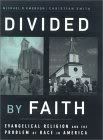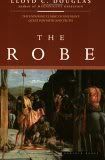 This chapter in Following Jesus in a Culture of Fear may be the most politically charged as Scott Bader-Saye tackles The Risk of Peacemaking. I should start out by saying that by peacemaking he is not saying that every Christian must be a pacifist, but simply that the call of peacemaking severely limits the ways in which we can justify violence. Fear and its attendant virtue of preemption pushes us to view the world suspiciously and often respond by force in order to ensure our security. Here he asks the question: is there a better, more Christ-like way to respond when we feel threatened?
This chapter in Following Jesus in a Culture of Fear may be the most politically charged as Scott Bader-Saye tackles The Risk of Peacemaking. I should start out by saying that by peacemaking he is not saying that every Christian must be a pacifist, but simply that the call of peacemaking severely limits the ways in which we can justify violence. Fear and its attendant virtue of preemption pushes us to view the world suspiciously and often respond by force in order to ensure our security. Here he asks the question: is there a better, more Christ-like way to respond when we feel threatened?
Returning again to providence, he declares that while trusting providence is the key to peace, it is also fairly readily turned on its head by those in power in such a way that it actually threatens peace. We see this all through history - when providence is used to justify violence and domination. After all, if whatever happens is God's will, then the victor must be God's winner. And, he notes, the victor not only writes the history, but also writes the theology. Thus we find scripture being used to support the rich, the powerful and the oppressors, contrary to the life of Christ as witnessed to in the gospels, which shows compassion and love towards the meek, the poor, and the oppressed.
In order to respond appropriately to threat, we must cultivate the virtue of patience. "One of the gifts of courage is the ability to be patient because we refuse to let fear push us to act before we are ready, that is, before we have taken time to gather the wisdom necessary to judge a situation with prudence. Because Christians trust in Gods' providence, we believe that time is on our side, that history unfailingly moves toward that fifth act in which God will gather up all things in Christ. Patience, then, as an outworking of our trust in providence, becomes a partner of peace." (129)
This patience, however, must not be creatively cloaked apathy. All peacemaking efforts ought to involve actively living the way of God. So, for example, during the civil rights movement it wasn't Godly patience that urged the black leaders to just wait. "Their kind of patience was not a freely chosen witness to God's providence, but a weapon wielded by the powerful to shut down social change." (130)
To be perfectly honest, I find the risk of peacemaking to be quite difficult. Not only to do, but to figure out what doing it even means. The idealist in me is drawn to pacifism, but the reality of non-response in the face of terrible, violent injustice chastens me. But can a nation wage a war 'justly'? I don't know. What are 'sufficient' reasons to respond in violence? It's all so hard to discern!
And even on a personal level, it is so tricky, especially given our astounding capacity for self-deception, to figure out when we are being patient and when we are being apathetic. It's far too easy to brush things off with an "all in God's time," but perhaps easier still to act rashly in the interests of 'urgent' tasks and problems.
Anyone have thoughts on this? I'm curious to hear what y'all think about pacifism, just war, criteria for helping to discern when to act, etc.
Next week, the final chapter: The Risk of Generosity









3 comments:
Jasie,
I really enjoyed your thoughts on this topic. It is a hard one for me.
I find John Howard Yoder (though slightly extreme) to be an interesting person to read on the issue of Christianity and pacifism. He often turns to the second chapter in Ephesians for help, citing the notion that "in" Christ we have been brought together in a specific type of "peaceful" relationship. That said, I have never met (even a pacifist) who would scorn the soldiers who used rifles to free Jewish prisoners in WW2...Perhaps another example that the Bible and our faith is less of a strict rule book and more of a pair of lenses. Put them on and hopefully through them we make good choices...sometimes :)
"Remember that you were at that time separate from Christ, excluded from the commonwealth of Israel, and strangers to the covenants of promise, having no hope and without God in the world.But now in Christ Jesus you who formerly were far off have been brought near by the blood of Christ. For He Himself is our peace, who made both groups into one and broke down the barrier of the dividing wall..." Ephesians 2:12-14
zak davis (met you at L'Abri this last term)
So, I've been thinking about this for days because I too feel the tension of this complicated issue -- and now that I've been thinking about it, I'm not sure I've ever really given much serious thought to it. Fighting for what's right in aggressive, even violent ways is a precious virtue in the States, especially our state; it’s something I too easily take for granted.
I realized that what comes to mind when I hear the word pacifist, isn't Jesus, though he certainly exhibited such a spirit, especially during his Passion. Rather, what comes to mind is Buddha and Gandhi and the Dali Lama. Occasionally certain Western Christian sects come to mind, but generally, when I try to associate peace with people, my thoughts travel Eastwardly. For me this association derives from the movies more than anything else. Actual history plays a role, to be sure, but I think I have misunderstood what a peace-orientated person truly looks like. Not that I am suggesting the above aren’t examples of peaceful persons; truly they are, but I think my view of pacifism is limited.
These Eastern masters obtain and live in/out peace by ridding themselves of their passions, which are illusions of individuality and distinction. Jesus, however, never did this. What he did was much more radical (and thereby confusing). Jesus turns over tables but not oppressive governments. And we catch him saying things like, “I did not come to bring peace, but the sword” and, “Peter, put down your sword for those who live by the sword die by the sword” a few pages later. While Jesus seems to contradict himself, I don’t think he does. For Jesus always maintains the bigger picture, a Kingdom mindset. Both types of statements speak to the flooding waters of grace which level hiearchies and reprioritize, well everything, namely our loyalties and the way in which we view and thereby order the world. So perhaps it is this perspective that matters most and why Providence is so vitally important, as your author is right in saying. (On a further note, Jesus’ pacifistic sayings far outnumber his non-pacifistic statements: turn the other cheek, not an-eye-for-an-eye, but love, etc.)
The discussion of what is and isn’t a just war is too big for me; I don’t even know where to begin. But Bader-Saye’s observations that the call of peacemaking, which is given us over and over in the New Testament, largely criticizes the ways in which I justify the appropriateness of violence.
Hi Jasie,
I've been reading this book and found your journal. I enjoy reading your journal as it adds to my thoughts on the subject! :) One thing I wanted to clear up was what you said about the Civil Rights movement.
You had said, "This patience, however, must not be creatively cloaked apathy. All peacemaking efforts ought to involve actively living the way of God. So, for example, during the civil rights movement it wasn't Godly patience that urged the black leaders to just wait. "Their kind of patience was not a freely chosen witness to God's providence, but a weapon wielded by the powerful to shut down social change." (130)"
I believe what Bader-Saye meant was that the White church leaders were telling Black leaders to "just wait" as a "weapon wielded by the powerful (the white people) to shut down social change". Also, he used MLK, Jr. as an example of acting in "another kind of patience. Rooted in his commitment to nonviolence, King refused to engage in an impatient call to arms." (130) So...I think it was actually more of Godly patience.
What do you think?
CC
Post a Comment